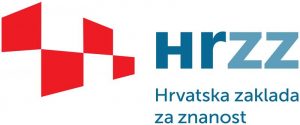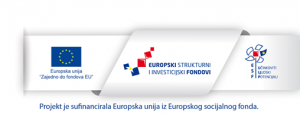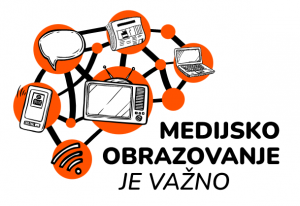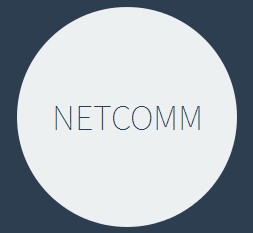National competitive projects
DEVELOPER - Digital Data, Infrastructures, and Development (2023-2027)
Digital data circulated through internet platforms, smartphones, and other devices have become the source of intense commercial activity and public infrastructure advancement in developed countries. Data is an essential input for algorithms, enabling the construction of artificial intelligence with the help of machine learning and natural language processing while replacing manual, time-consuming data management and providing new analytical insights. As more data becomes available in digital formats, it is often said to be the driver of economic growth and well-being. However, economic and social development is not a straightforward implementation of computational techniques but a process dependent on multiple social factors. Understanding the role of data in society has been the focus of intense debate in infrastructure studies, critical data studies, and platform studies. The DEVELOPER project will provide an interdisciplinary social science analysis. It aims to examine the role of digital data in society at the level of institutions (law and markets), organizations (private and public), and the everyday life of citizens. It moves away from utopian or dystopian visions of (big) data and empirically explores factors that foster or hinder the development of data infrastructures, including their role in producing private and public wealth. The Project follows an exploratory, sequential, mixed-methods research design to understand norms, values, experiences, and practices attributed to digital data and data infrastructures. It will advance knowledge in the scientific community and provide a better understanding of data infrastructures in the post-socialist economic periphery of the European Union. Assessments based on empirical research will further develop strategic plans outlined by the European Commission and the Croatian National Development Strategy, foster regulatory oversight, improve organizational and working conditions, and include citizens in digital services.
New Public Culture and Spaces of Sociability (2020-2023)
The project investigated the state and use of local cultural infrastructure for cultural and social activities. It promoted decentralization and better inclusivity. The goals were to set up the research methodology and research schedule, design and conduct research on public cultural centers and civil-public partnerships, and participate in the implementation of research on new models of infrastructure for culture and social activities, as well as to lead the process of writing 6 guidelines, which included designing the process of drafting guidelines, collecting and analyzing the necessary data for drafting guidelines, coordinating the entire process of drafting the guidelines and mentoring teams in charge of writing the guidelines regarding quality standards in the process of drafting guidelines, writing part of the guidelines and final formatting of the guidelines themselves, and implementation of the consultative processes. Preparation of an analysis of the social impact of the proposed guidelines. 2 scientific articles were prepared, that resulted from the conducted research.
Media education is important.MOV (2020-2023)
The project contributes to the analysis of the current state of the field of media literacy, the development of synergistic activities, and a model based on evidence and research, which contributes to the achievement of the objective of the call and national and EU regulations. Media literacy is important for a democratic society and an active and responsible citizenry, defined as the ability to access, analyze, evaluate, and transmit messages through the media, and it implies the development of cognitive, ethical, aesthetic, and philosophical skills and knowledge. Media education has proven to be extremely important and necessary and should be established based on scientifically proven models of effective programs. Media and information literacy include the competencies of gathering information from various sources, their critical evaluation and effective use, and the creation and responsible distribution of multimedia content with the help of digital tools. When we define media literacy as the ability to access, analyze, critically evaluate, and create new media content, we recognize its three dimensions: technical competence, skills and practice of critical thinking/acceptance, and content production. From these definitions, we see that an integral part of media literacy is the ability to access information sources, among which the Internet is one of the most important sources that also requires the development of information communication or digital competence. Although exposure to media and information sources is often uncontrolled and happens almost automatically, it is precisely media literacy that develops the skills of conscious decision-making about exposure to media content, and critical analysis of media content, and it also creates opportunities for self-expression and production of media content. Therefore, it is particularly important to use positive influences and prevent the possible harmful effects of exposure to the media. A significant influence of the media is also reflected in their influence on democratic processes because the media can participate in the manipulation of the public or strengthen democratic political processes and support citizens’ rights to information. In the same way, for the democratic participation of citizens, they need to be informed and have the skills of critical thinking and self-expression.
NETCOMM - Networks of public communication in Croatia: mediatisation of the public sphere and the challenges of new media (2014-2017)
The media and society are tightly intertwined in a close and dynamic relationship. Shaped by societies, the media also shape societies. This relationship engenders social change that is at the core of the current mediatisation process and theory debates (Schulz, 2004; Krotz, 2007; Hjarvard, 2008; Hepp, 2011). Networked communication technologies reshape the equilibrium of the media/society relationship and extend the mediatization process to new directions. The process is not a straightforward technological impact, but a complex accommodation process. In this research, we study how the public sphere (Habermas, 1991) has been reshaped through networked communication (Cardoso 2008). We focus on four aspects of mediatisation: extension, substitution, amalgamation, and accommodation (Schulz, 2004) to study organizational changes in the process of media production; and media use and practices among internet users. The main objective is to understand processes of media production, consumption, and their interrelations, concerning public communication through new, online, and networked media. Specific goals include contributions to the development of the mediatization theory; establishment of a classification of online media in Croatia; development of mixed methods research designs and providing impetus to related public policies. We employ a sequential, explorative research strategy (Creswell, 2009). In the first stage, we conduct multiple, qualitative case studies of the processes of organizational change in different online media. In the second, intermediary stage we construct survey questionnaires based on previous qualitative work. In the third stage, we use a survey on a national representative sample and provide further analytical conclusions derived from the research. The potential users of our research results include scientific research communities, the media industry, media organizations, policy decision-makers, regulatory institutions, and various NGOs.





